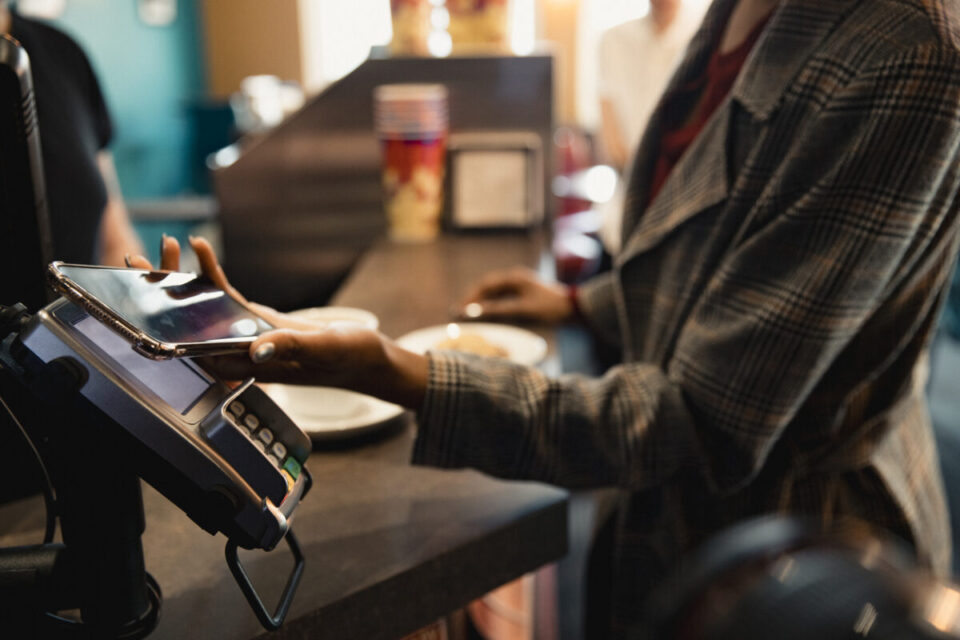The coronavirus pandemic may have spurred the move toward a cashless society, but the idea of ditching cash has been around for far longer. Now, catalysed by a global pandemic, the evolution of digital payments, and contactless technology, a cashless society is quickly coming to fruition as Alistair Johnson, the founder and CEO of Nuggets explains.
In April, cash machine usage sank 60% as the pandemic took hold, according to data from ATM network provider Link. Consequently, three-quarters of UK citizens believe their cash habits will change for good, with over half of Brits saying they will use cards much more frequently going forward.
And those hoping for the elimination of cash altogether may well get their wish.

COVID-19 has already stimulated the use of contactless payments. Per data from Barclaycard, contactless accounted for 90% of all “face to face” transactions since April 1. Melded with the emergence of digital currencies, and more importantly, central bank digital currencies—of which 80% of central banks are currently working on—and the shift to a cashless society seems closer than ever before.
Considerations before ditching cash
According to trade association UK Finance, Britain is on course to becoming a cashless society “within the next 10 years.” But while going cashless might be inevitable, the transition elicits concerns for retailers and consumers alike who are likely unprepared for the challenges.
Per data from the Financial Inclusion Commission, almost 2 million Brits are without a bank account and still rely on notes and coins to get by. But it isn’t just our dependence on cash that is flaring concerns; fraud poses a substantial threat as well.
A prime example comes from soaring chargebacks faced by retailers. Unable to secure signatures on delivery, due to social distancing guidelines, courier companies have been forced to abandon traditional methods of conformation. Fraudsters have lept on this lack of verification by declaring chargebacks, in which a consumer claims money back via their bank on legitimate purchases by alleging items never arrived. This so-called “friendly fraud” method has made up between 60-80% of all merchant chargebacks since the onset of COVID-19.
I also worry about which path we take to get to a cashless society, especially with a culture focused primarily on plastic debit and credit cards.
For years, we’ve been steadily transitioning away from cash in favour of plastic, but these are, in fact, far from convenient. The loss/theft/destruction of a card is a significant encumbrance, which requires that the holder freeze it before reordering another, leaving people virtually ‘cashless’ for days while they’re waiting for the new plastic card. Plus, once the new card does arrive, their owners then need to go and alter the card details, which, on average, are saved in over 100 different websites.
We’re also yet to see the potential impacts of increasing the contactless payments limit to £45 — something that will likely lead to further fraud. Opportunists, fraudsters, and thieves who manage to obtain your personal details, or even your debit card, can easily capitalize on this higher limit and head out on a contactless shopping spree.
To combat this, biometrically-verified plastic payment cards are in the works. In fact, an estimated 579 million of these fraud-busting payment devices will be in use by 2023. But why continue with plastic at all? It makes little sense—especially when the same biometric technology can be executed via a smartphone.
In order to both nip fraud in the bud, and leapfrog to a future free of plastic payment cards, we need a verifiable solution that intrinsically ties payment to the owner. Fortunately, such a solution is not beyond the realms of possibility.
Harnessing tech in a post-cash world
It seems bizarre, in the digital age, that payments — and, indeed, identities — are still tied to physical objects, particularly when these open up attack vectors like identity theft or fraud.
In fact, a better vision of a cashless society should be built around people’s funded decentralized digital identities. These could be used in apps and across devices, such as phones, watches, fitness devices, and smart rings. In this way, consumers could verify all their transactions through their existing phone, which already has biometric verification, rather than being restricted to a single plastic card that can be cloned or stolen.
Blockchain technology, biometric authentication, and zero-knowledge storage are the quintessential tech stack for leapfrogging over plastic cards and laying the foundations for a truly cashless society.
I don’t think we’ll be seeing the immediate demise of cash, and nor should it be until the necessary measures are in place for members of society that are left dependent on such means and methods. Still, the coronavirus pandemic has provided clarity in pathing the road ahead for those that might have needed a little nudge, be that businesses or individuals.
It’s undeniable that a cashless society brings advantages, not only to a consumer wanting to make fast payments at any time from anywhere, but also for businesses, governments, and regulators who wish to eradicate criminal and illicit activity. But to affect the right kind of change, we need to transition in a responsible and tech-appropriate way.



